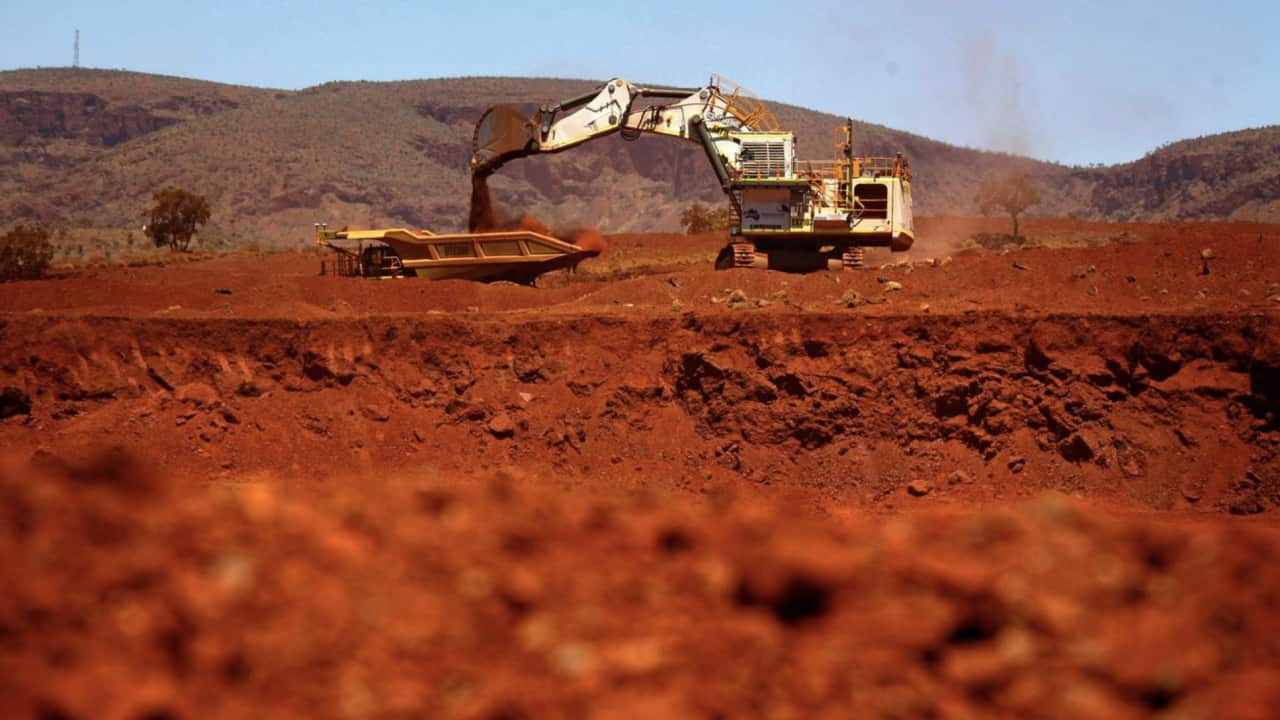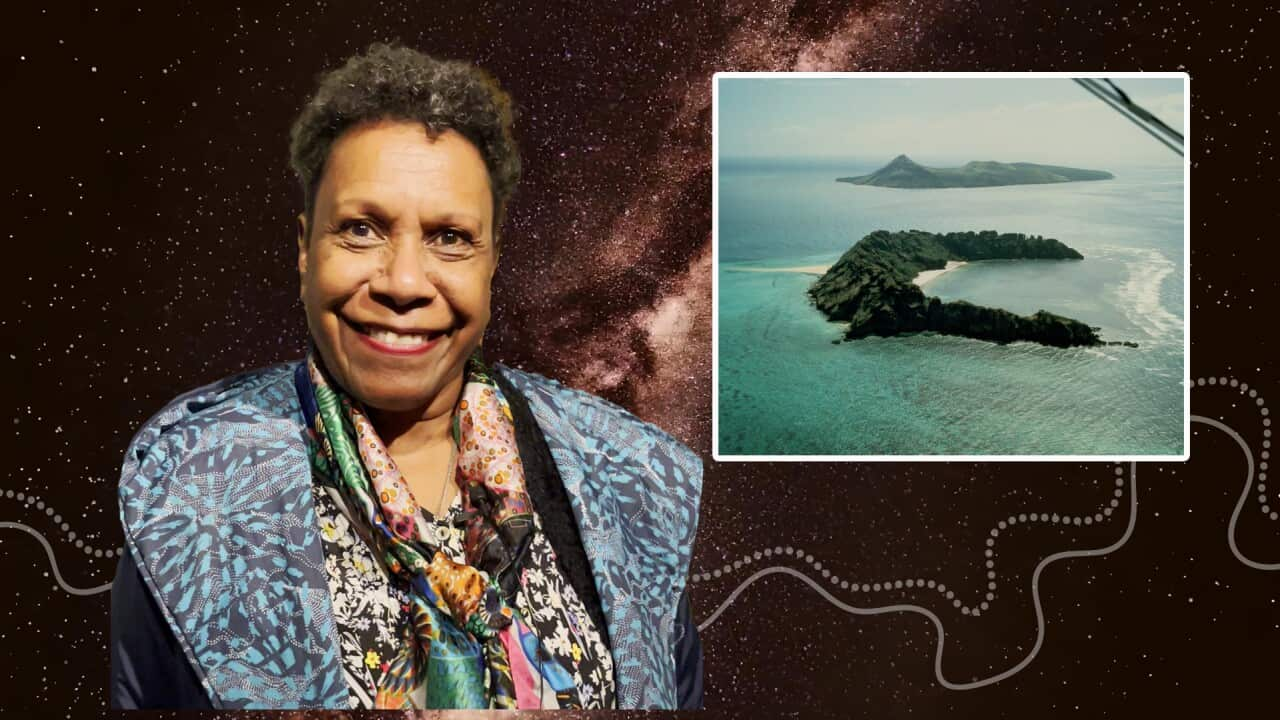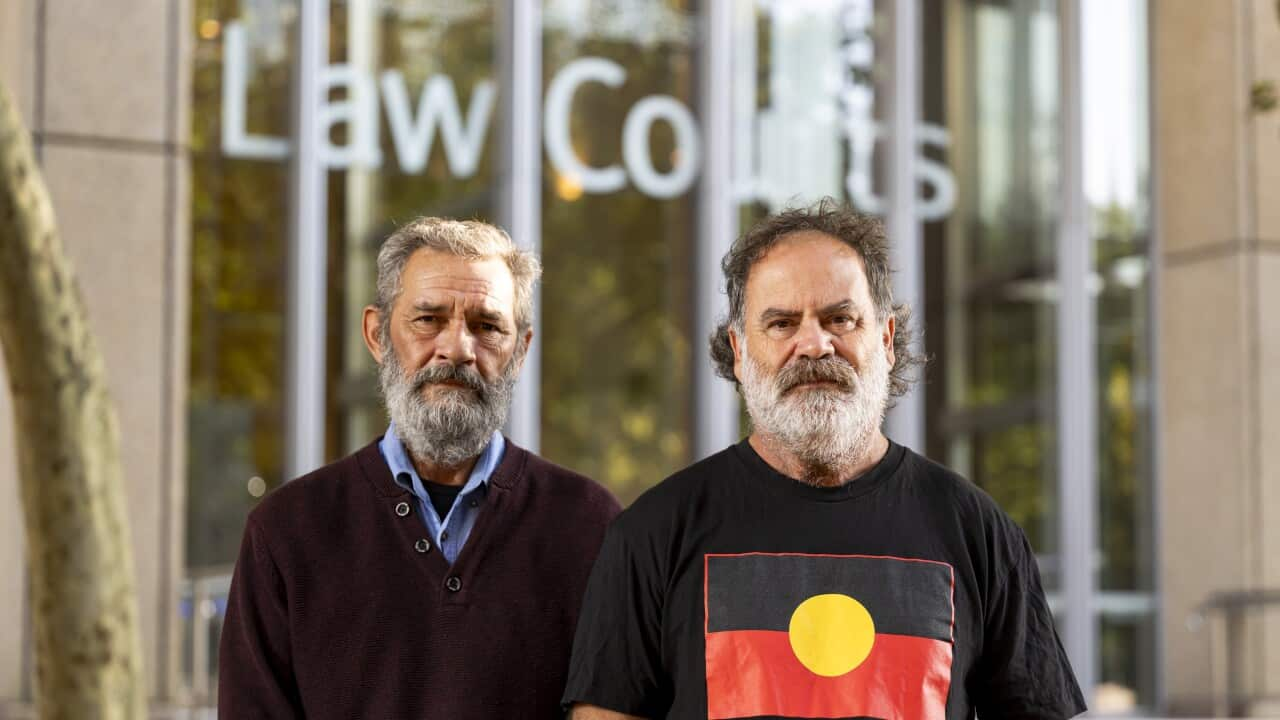When artist Gail Mabo was 15 her father, Eddie Koiki Mabo, was studying to become a teacher.
He had to do a study of self, a charcoal self-portrait, so was sitting, looking in the mirror.
"I looked over his shoulder and said, ‘but Dad, your eyes aren’t that golden colour’ and he said, ‘no, it’s what we want them to look like,’" Gail said.
"As he was putting some more lines on his picture and drew a slash of red across his forehead like a bandana he said, ‘you know my girl, one day all of Australia is going to know my name.”
More than 30 years ago a landmark legal case, brought by Eddie Koiki Mabo and fellow Meriam people Reverend David Passi, Sam Passi, James Rice and Celuia Mapo Sale, recognised the rights of Aboriginal and Torres Strait Islander people to their lands.
A centre, opening in Boorloo (Perth) on Tuesday, will continue the forefather of native title's legacy, which began in 1982 when the group lodged their legal claim in the High Court for ownership of their lands.
READ MORE

Mabo: the Man
The Mabo Centre will focus on advancing First Nations leadership, research and improving economic outcomes for communities through land and sea rights.
Dr Mabo's family gifted the centre his name, with Gail saying the centre will continue the fight for justice.
“Through winning the case, Dad gave the right for all First Australians to celebrate those things we hold most dear to us," she said.
"To bring back our voices; to bring back our culture; to bring back strength to the proud people that we are.
"This meant that the fight that he started for his land on his island in the Torres Strait became more than about a recognition of land ownership, but importantly it gave our people the right to speak their language, name their countries, and to do the Welcome to Country.
“The Mabo Centre will continue Dad’s legacy of fighting for justice, providing a golden light for others to follow.”
Mabo Centre co-chair Jamie Lowe, chief executive of the National Native Title Council, said Dr Mabo's contributions left an enduring influence in Australia, inspiring generations of Indigenous activists in their fight for rights to Country.
“The Mabo decision was handed down 33 years ago, starting the recognition of native title in law," the Gundjitmara and Djabwurrung man said.
"However as Traditional Owners, we have known for over 65,000 years that we have rights to Country.
"It’s time that native title met the needs of Traditional Owners and can continue to do so for generations.”
The Mabo Centre will be established under a partnership between the National Native Title Council and the University of Melbourne.
It was conceived following a long process of consultation about the challenges and barriers to self-determination and economic prosperity through land and sea rights, co-chair Professor Marcia Langton said.
“It is time for a new mechanism to consider the impact of land and resource use and extraction from our lands within a rights framework," she said.
The Mabo Centre will support Traditional Owners as the Australian economy transitions to a cleaner energy future, which depends on critical minerals.
The Centre will work to foster leadership, knowledge sharing and First Nations expertise.
Informed by consultation undertaken by the National Native Title Council, the Mabo Centre will focus on work around critical minerals, clean energy and Free, Prior and Informed Consent.
The Centre will support the rights of Traditional Owners to provide new economic opportunities for their communities, previously largely excluded from traditional minerals extraction.
National Native Title Council chair Kado Muir pointed out that many Traditional Owner corporations have little ability to access finance and other critical support needed to manage Country and purchase equity stakes to co-own large-scale projects.
“We must find innovative and creative financial solutions to support Traditional Owners leverage their rights into opportunities for growth," he said.
"We must not allow native title holders who have spent decades fighting for their rights, to be affected by sub-par policies that limit their self-determined vision for wellbeing and economic self-determination.
“The Mabo Centre will help redefine socio-economic relationships between First Australians and the settler economy.”
The First Nations-led partnership will be guided by Mr Lowe, Professor Langton and University of Melbourne Dean of Business and Economics Paul Kofman as co-chairs, and an advisory board that includes Larrakia, Wadjigan and Central Arrente lawyer Eddie Cubillo as one of the directors.
Professor Cubillo said the Mabo Centre will support First Nations governance, and provide the policy base to enable agreement making, aiming for justice for Indigenous people.
“Justice is about much more than the law and rectification of wrongs," he said.
"It is about provision of knowledge and opportunities to make change.”








